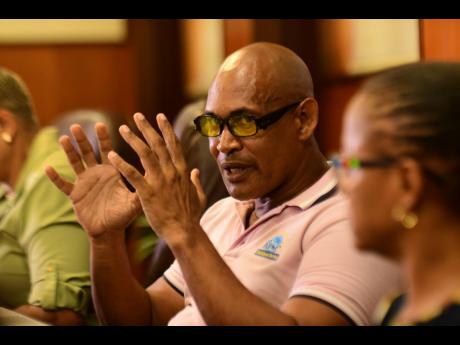Several J'cans opt for voluntary bans to rein in gambling habit
Fifty-two Jamaicans are currently enrolled in a voluntary intervention programme led by RISE Life Management Services, which assists those struggling with their gambling habits in stepping away from such activities and refocus their lives and...
Fifty-two Jamaicans are currently enrolled in a voluntary intervention programme led by RISE Life Management Services, which assists those struggling with their gambling habits in stepping away from such activities and refocus their lives and finances.
Dubbed the the Voluntary Self Exclusion Programme (VSEP), the initiative is designed to call gamblers' attention to their problems.
Once a ban is requested and initiated, the patron is prohibited from accessing all gaming lounges islandwide for the specified time period.
Patrons can request a three-month, six-month, one-year or a lifetime ban from gaming lounges.
Programme coordinator Richard Henry said the non-governmental organisation receives an average of three requests per month and noted that some gamblers withdraw before the ban is initiated.
“However, some are adamant to follow through. It has worked for a lot of people that are on lifetime bans. People see me and tell me that they finally built their house or they were able to open another business because they stopped gambling,” he said during a Gleaner Editors’ Forum on Wednesday.
A recent study on adult gambling in Jamaica, commissioned by the Betting, Gaming and Lotteries Commission (BGLC) and RISE Life Management Services, found that almost 13 per cent of Jamaicans are considered problem or moderate problem gamblers.
Further, youth ages 18 to 24 years have the highest problem gambling prevalence, followed by those in the 25 to 29 age cohort.
“We want to improve the visibility of the programme, so people know that it is available to them and that will take some negotiating and working with the gaming lounges. We want to create a culture of responsible gaming because a person who has a gambling disorder is not a good client for the business because they or their families are likely to experience negative consequences from gambling,” Henry explained.
He said that good clients are those who exercise self-control and have limits on how much they spend.
The RISE Life programme coordinator added that one in every three persons who suffer from a gambling disorder recovers through self-help.
“I’ve had clients who said, ‘I tried to go back in and I wasn’t allowed and the shame I felt from trying, I’ve never gone back there.’ The good thing about our programme is that it is available islandwide. If you get banned from one gaming lounge in Kingston, you are banned from gaming lounges in Montego Bay because we are all on the same system,” he explained.
Henry used the opportunity to encourage gaming lounge staff and supervisors to assist patrons who ask to be enrolled in the programme.
“Remember, the document completed at your gaming lounge is a request to receive a ban and not the ban itself. The completed document should be sent to RISE Life Management for completion of the registration process and the ban officially initiated,” the programme coordinator said.
FACT BOX
When to self-exclude:
-Gambling is no longer fun for you
-You are experiencing financial, health, emotional, psychological or relationship problems as a result of gambling
-You feel that taking a break could be of help to you
-Increasing stress to you and others close to and around you
-You feel as though you are unable to control the urge to gamble
-You are now heavily into chasing, meaning that you are losing but your focus is solely on winning back losses


